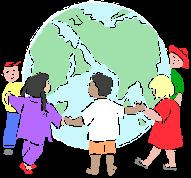I guess that I have been living a self-induced sheltered life. I was horrified to read how far these radical groups would go for their extremist beliefs. In the article, Pithissippi Burning: Race, White Nationalism and American Culture, the author discusses a book written to create a new homeland for white people. When I think of the problems happening in the Middle East, I think of extremist who want to eliminate other groups of people. I think of the horrific acts these extremist are willing to do to promote their own group over others. These American extremist are the same. The article asks what handbook we on the other side of this opinion have to guide us to move forward with this kind of social and cultural integration. How do we create a country that can have solidarity of people when there are so many factions of people, each with their own agenda?
The articles, The Challenge of “Multiculturalism” in how Americans view the Past and the Future (Taylor), and Why Multiculturalism is Wrong (Treanor), put forward the idea that multiculturalism or pluralism is wrong and that a nation can not create a place that will work for every culture. They say there are too many histories, and too many different people to be able to meet the needs of them all.
I have to again stand firm in the knowledge of idealism. The people coming to the United States want a better life for themselves. They came here because this country offered them something they couldn’t get in their home country. Maybe it was safety, security, education, or a chance for a better future. They came here hoping for a better life, just as the people who originally came here did. I think we all have more in common than we know or allow ourselves to think. We are humans who hope to have a better life for ourselves and our children.
So, how do we allow this country to reach out for a better tomorrow? We learn to live with each other. We learn to understand and accept our differences and embrace our similarities. According to Hanley (1999), it is the suppression of cultures that weakens the society. In order to prevent the suppression of cultures, we need to accept and respect others and not consider any one culture superior. Schools can lead in this endeavor.
Parker (2003) stated that “Schools, I believe, are ideal sites for multicultural democratic education. The main reason is that they have within them congregations of diverse students—some schools more than others, of course, but all of them are diverse to some extent. This diversity is their main asset when it comes to multicultural democratic education.”
Parker (2003) continues, “This, then, is the great democratic potential of the public places called schools. As Dewey (1985) observed, "The notion that the 'essentials' of elementary education are the three R's mechanically treated, is based upon ignorance of the essentials needed for realization of democratic ideals" (p. 200). Used well, schools can nurture these "essentials"—the qualities needed for the hard work of living together freely but cooperatively and with justice, equality, and dignity.
Schools, school teachers, and administrators, and their ideals, therefore, are crucial in the creation of a functioning pluralistic society. Schools provide the place for students of varying backgrounds to learn to work through their differences and to live together.
References
Hanley, Mary Stone. (1999). The Scope of Multicultural Education. New Horizons for Learning. Retrieved on September 27, 2009 from http://www.newhorizons.org/strategies/multicultural/hanley.htm .
Parker, Walter C. (March, 2003). Schools are not Private Places Like our Homes: Diversity, Democracy, and Education. New Horizons for Learning. Retrieved on September 27, 2009 from http://www.newhorizons.org/strategies/multicultural/parker.htm .
Taylor, Samuel. The Challenge of Multiculturalism in how Americans View the Past and the Future. The Journal of Historical Review, vol. 12, pp.159-165. Retrieved on September 27, 2009 from http://www.ihr.org/jhr/v12/v12p159_Taylor.html .
Tobia, PJ. (February 23, 2009). Pithissippi Burning: Race, White Nationalism and American Culture. Retrieved September 27, 2009, from http://blogs.nashvillescene.com/pitw/2009/02/pithissippi_burning_an_essay_o.php .
Treanor, Paul. Why Multiculturalism is Wrong. Retrieved September 27, 2009, from http://web.inter.nl.net/users/Paul.Treanor/multicult.html .
Sunday, September 27, 2009
Subscribe to:
Post Comments (Atom)

Well-worded and interesting blog entry.
ReplyDelete